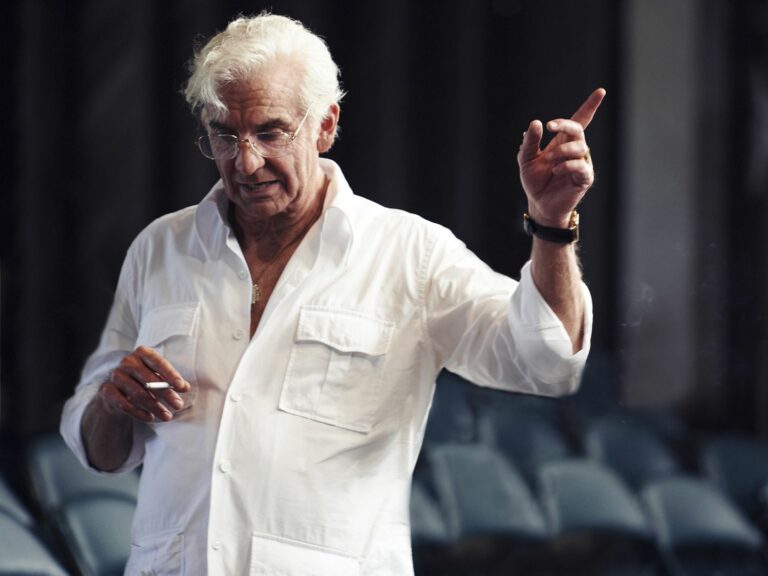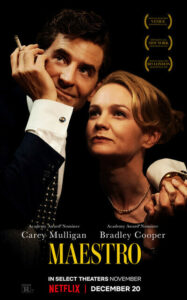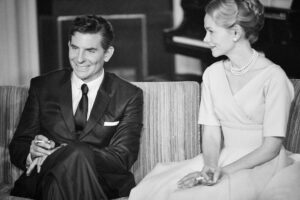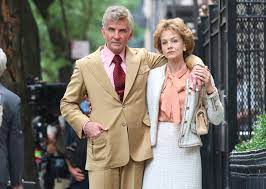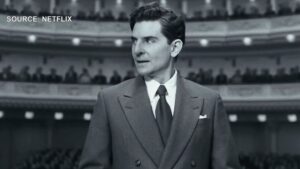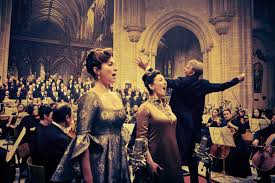Directed by Bradley Cooper | Written by Cooper and Josh Singer | 129 min | ▲▲▲▲△ | Netflix
Here’s a film that’s gorgeous to see, to hear, and featuring at least one remarkable performance, but is occasionally undermined by some counterintuitive narrative and directorial choices.
Its leading actor, writer, and director steps up, swings, and swings again under layers of make-up and prosthetics, though never quite escapes the sense of vanity beneath the effort— anytime a big name in Hollywood chooses to do a biopic of another famous figure where they take on two or three of the key creative roles you’re never far away from the glowering possibility.
It makes you wonder if Cooper is working out some kind of guilt around his own Golden Boy status with this project. The whole movie feels like a statement of intent: “If I work my fingers to the bone with this project people will know I’m a legitimate artist!”
He’s playing legendary composer and conductor, Leonard “Lenny” Bernstein. The film is best described as a love story between Lenny and his wife, Felicia Montealegre, played by the astonishing Carey Mulligan, as powerful and affecting here as anything she’s been in. The role is sure to earn her acclaim, just as Cooper’s last dance partner, Lady Gaga, also shone in his A Star Is Born.
The film starts in black and white and the frame in the Academy Ratio. It’s the hallmark of “serious cinema” of late, frequently justified in period dramas and any picture that wants to highlight performers’ faces, and Cooper certainly does that. His modulated voice and physicality are convincing, it makes you wonder why all the prosthetics were necessary. The controversial nose is fine, but at times his face reminded me of Primus in the Winona’s Big Brown Beaver video.
The core conflict is around Bernstein’s identity as a gay man and how he subsumes it, marrying the vivacious Felicia. The first act is a rambunctious, screwball affair, the couple’s romance set against parties, picnics, and theatres featuring both of their work — she’s a Broadway actor — culminating in an interpretive dance where a troupe of men dressed as sailors threaten to steal Lenny away. It’s vivid, but it’s also painfully on the nose. It’s not the only time Cooper uses the most obvious imagery to illustrate his point: A shot of Felicia literally in the darkened wings of a concert hall while Lenny’s shadow looms over her feels like Visual Metaphor 101.
As a couple, Cooper and Mulligan are entirely winning and convincing. Their romance early on fizzes and pops as does the effort to recreate the era — New York in the ‘50s and ‘60s. Plum supporting roles for Sarah Silverman and Maya Hawke help lift the ensemble, too, and the cinematography by Matthew Libatique is stunning.
A flip to colour in the garish 1970s suggests we’re getting Felicia’s perspective, but that’s not really what happens. Instead we get decadence and illness, the narrative fragmented and, in places, confusing: In one scene Felicia is cautioning Lenny to be discreet about his same-sex dalliances, in another she’s raging at him for his denying his potential as an artist and a person because he’s closeted. We see it and have to piece it together at arms length.
A lot of the third act is devoted to one character’s cancer struggle, a conclusion that may not come as a surprise for a story that has more cigarettes than any film I’ve seen in my entire life, the habit an oblique but effective foreshadowing. Shoehorning REM’s “It’s The End of the World As We Know It” into the story, aside from putting a pin in the time period, felt more like a joke. Funny that Mulligan’s aging make-up is so much more convincing and consistent than Cooper’s.
The joy Lenny might have experienced as he embraces his true self isn’t particularly evident — this could’ve felt more like Mike Mills vision of his father’s coming out in Beginners, but no — and neither is his identity as an artist. At one point he’s grousing about not being as prolific as he’d like, and another he’s conducting a triumphant performance, but at no time do we get a sense of the emotional distance he’s travelled and how that’s connected to his queerness.
This can’t help but raise the issue around a straight man playing gay, a goy playing a non-Jew, and, in Mulligan’s case, a non-latinate actor playing a woman with Chilean background. I’m not suggesting the answer is monolithic, nor the same in all of these cases, but it is worth talking about.
What seems undeniable despite all this is Mulligan’s extraordinary presence and transformation in the role. See it for her, and for Cooper’s desperate, ambitious reach, if not his grasp.





